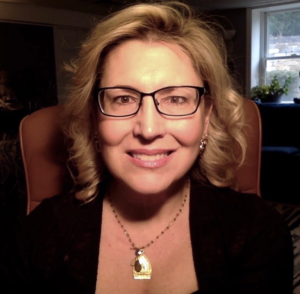When Change Chooses You
Sometimes we choose change. Other times life pushes us into change by way of a job loss, a death, an unexpected relationship change, inheriting money, losing our home, or perhaps a chance encounter with someone that changes the trajectory of our life. These are some examples of what I mean by change choosing you. Instead of us voluntarily taking the step into change, or into what a Change & Transition Strategist would name the ”liminal,” we are kicked there by a life event.
The liminal is an in between state. We may not know where we are going but we definitely aren’t where we’ve been. When we land in the liminal, the most dramatic change is our sense of whom we’ve believed ourselves to be. We may be focused on the significant change in our circumstances, but it’s really our self-identity that is undergoing a big shift. We are being asked to learn to hold ourselves in the world in a new way. When change hasn’t been our choice, that learning can be quite painful. Yet, in order for us to find, or regain, a sense of well-being, that internal shift is necessary. When we cross into the liminal, especially by being pushed, it is necessary to accept that we are on a journey.
This journey contains the potential to transform us. However, sometimes we can get stuck in the liminal by not surrendering to its transformative nature and not recognizing the challenge of doing so. To my mind, some words that describe the liminal are dark, unsure, difficult, and fear. Yet the liminal is also fertile, moist, rich, and deepening. How we navigate the liminal matters. There is often grief and tears as we let go of what was and move into acceptance. But beware of lamentation as it can limit our ability to imagine a future. This is a place where we learn to accept and work with our fear and uncertainty rather than have it paralyze us and keep us stuck. We must honor our loss and also learn to not be defined by it.
In the liminal, we can begin to develop new inner strengths or tap into ones that we hadn’t allowed ourselves to own before. This can be tremendously empowering. When we’re in this dark, rich place, new capacities can be mined and planted. It is also a time for reflection on our values. Often as we gain clarity about our values, new possibilities can come into focus. In this way, if we have experienced a loss, we can gain a higher, healthier meaning.
I had an aunt who was never truly able to make the journey through the liminal. The department store she had worked for much of her young to middle adult life went out of business. She was severely myopic and believed she couldn’t drive. After she lost her job she got trapped in a lot of internal stories: she couldn’t find a new job because she couldn’t drive, she’d claim the bus routes were limiting, she was caught in blame of her company, she didn’t want to try to get a drivers license. Her predominant belief system about both herself and the world kept her stuck. She became bitter, isolated, resentful, and miserly. What was worse was that no one in the family had challenged her belief system. In fact they avoided it. She was prickly and you know that old saying about porcupines.
What my aunt really needed was some help and support. She needed someone to help her navigate her loss through the natural stage of mourning and then to acceptance; someone to help her tack through the sea of doubt and fear; someone to encourage her and to help her begin to challenge her notions of herself and imagine a different, empowered version of herself. She needed someone to help her find new meaning in her loss and a new vision for her life.
If we allow ourselves to recognize the need for support, we can meet new people who become allies that challenge our unskillful thinking, help us gain clarity about our priorities and values, shine a light on our ambivalence and ambiguity, help us live intentionally, champion our growth, and who may walk the path with us for a while or for the distance.
These people can come in the form of a support group, a meditation group, or mentors. And now there is a new source of guidance — a highly trained Certified Change & Transition Strategist who is willing to get into the trenches with you and work as your advocate to help you claim a sense of well-being even after loss.
You can learn more about Certified Change & Transition Strategists here.

Patricia Johnson, Licensed Psychotherapist, Certified Change & Transition Strategist, Certified Mindfulness Meditation Teacher

